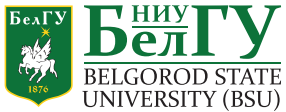Characteristics of The Implementation of Service Learning in The Educational Process in An Interdisciplinary University: Organizational and Management Model
DOI:
https://doi.org/10.18413/2949-267X-2025-4-1-0-5Keywords:
service learning, socially oriented non-profit organizations, training activities, socially vulnerable population groupsAbstract
The article presents the concept of implementing the service-learning approach in a multidisciplinary university. The diversity of educational fields implemented at the university, the non-obvious connection between educational programmes and the problems of socially vulnerable groups of the population require targeted work with socially oriented NGOs to form work orders within the framework of educational activities. The article outlines a model developed taking into account the specifics of higher education institutions, which includes the systematic introduction of elements of the approach in various types of educational activities, allows to adjust the labour costs of teaching staff and to conduct a gradual immersion of students in the solution of professional problems with the development of professional competencies on cases from socially oriented non-profit organisations and partner enterprises.
The described model was tested and accepted for implementation by the Educational and Methodological Council of Kosygin Russian State University.
Downloads
References
Список литературы
Выготский, Л.С. Педагогическая психология. − М.: Педагогика, 1991.
Дьюи, Д. Творческая демократия-задача, которая стоит перед нами // Вестник Московского университета. Серия 12. Политические науки. – 2008. – №. 2. – С. 46-51.
Макаренко, А.С. Избранные произведения: в 3 т. − К.: Рад. Школа, 1985. – Т. 3.
Никольский, В.С., Зленко, А.Н. Обучение или служение в российском высшем образовании: особенности начального этапа реализации нового подхода // Интеграция образования. − 2024. − Т. 28, № 3. − С. 421–435. URL: https://doi.org/10.15507/1991-9468.116.028.202403.421-435
Никольский, В.С., Амбарова, П.А., Шаброва, Н.В., Земцов, Д.И., Метелев, А.П. Готовность студентов вузов к общественному служению // Высшее образование в России. − 2024. − Т. 33. № 8-9. − С. 9–26. DOI: 10.31992/0869-3617-2024-33-8-9-9-26
Сухомлинский, В. Рождение гражданина. – Litres, 2023.
Astin, A.W., Vogelgesang, L.J., Ikeda, E.K. and Yee, J.A. (2000), How Service Learning Affects Students. Los Angeles, Higher Education Research Institute, UCLA.
Caspersz, D. and Olaru, D. (2017), The Value of Service-Learning: The Student Perspective, Studies in Higher Education, Vol. 42, Issue 4, pp. 685–700. https://doi.org/10.1080/03075079.2015.1070818
Celio, C.I., Durlak, J.A. and Dymnicki A.B. (2011), A Meta-Analysis of the Impact of Service-Learning on Students, Journal of Experiential Education, No. 34, pp. 164−181.
Gutzweiler, R., Pfeiffer, S. and In-Albon T. (2022), ‘I can Succeed at This’: Engagement in Service Learning in Schools Enhances University Students’ Self-Efficacy, Studies in Higher Education, Vol. 47, Issue 12, pp. 2539–2552. https://doi.org/10.1080/03075079.2022.2091126
Hébert, A. and Hauf, P. (2015), Student Learning through Service Learning: Effects on Academic Development, Civic Responsibility, Interpersonal Skills and Practical Skills, Active Learning in Higher Education, Vol. 16, Issue 1, pp. 37–49. https://doi.org/10.1177/1469787415573357
Jaeger, A.J., Jameson, J.K. and Clayton, P. (2012), Institutionalization of community-engaged scholarship at institutions that are both land-grant and research universities, Journal of Higher Education Outreach and Engagement, Vol. 16, No. 1, pp. 149−170.
Kristina, T. (2008), Lambright Lessons Outside of the Classroom: Examining the Effectiveness of Service Learning Projects at Achieving Learning Objectives, Journal of Public Affairs Education, No. 14(2), pp. 205-217. DOI:10.1080/15236803.2008.12001520
Lo, KWK, Ngai, G, Chan, SCF and Kwan, K-p (2022), How Students’ Motivation and Learning Experience Affect Their Service-Learning Outcomes: A Structural Equation Modeling Analysis, Front. Psychol, 13:825902. doi: 10.3389/fpsyg.2022.825902.
Markus, G.B., Howard, J.P. and King, D.C. (1993), Notes: Integrating Community Service and Classroom Instruction Enhances Learning, Results From an Experiment. Educational Evaluation and Policy Analysis, No. 15, pp. 410 – 419.
Mpofu, E. (2007), Service-Learning Effects on the Academic Learning of Rehabilitation Services Students, Michigan Journal of Community Service-Learning, No. 14, pp. 46−52.
Novak, J.M., Vern, M. and Mike, A. (2007), Evaluating Cognitive Outcomes of Service Learning in Higher Education: A Meta-Analysis, Communication Research Reports, No. 24, pp. 149−157.
Students’ Motivation in Academic Service-Learning over the Course of the Semester / A. Darby [et al.] // College Student Journal, 2013, Vol. 47, No. 1, pp. 185–191. URL: https://www.ingentaconnect.com/content/prin/ csj/2013/00000047/00000001/art00019
Sze-Yeung Lai, C. and Chi-Leung Hui, P. (2020), Service-Learning: Impacts of Learning Motivation and Learning Experience on Extended Social, Higher Education Research and Development, Vol. 40, Issue. 2, pp. 400–415. https://doi.org/10.1080/07294360.2020.1756748
Warren, J. (2012), Does Service-Learning Increase Student Learning?: A Meta-Analysis, Michigan Journal of Community Service-Learning, No. 18, pp. 56-61.
Wilson, J.C. (2011), Service‐Learning and the Development of Empathy in US College Students, Education + Training, Vol. 53, No. 2/3, pp. 207–217. https://doi.org/10.1108/00400911111115735.
References
Vygotsky, L.S. (1991), Pedagogical psychology. M.: Pedagogy. (in Russian)
Dewey, D. (2008), Creative Democracy-Task that stands before us, Vestnik of Moscow University. Series 12. Political Science, No. 2, pp. 46−51. (in Russian)
Makarenko, A.S. (1985), Selected works: in 3 vol. K.: Rad. Shkola, Vol. 3. (in Russian)
Nikolskiy, V.S. and Zlenko, A.N. (2024), Teaching or service in Russian higher education: features of the initial stage of realization of the new approach, Integration of Education, Vol. 28, No. 3, pp. 421-435. URL: https://doi.org/10.15507/1991-9468.116.028.202403.421-435. (in Russian)
Nikolsky, V.S., Ambarova, P.A., Shabrova, N.V., Zemtsov, D.I. and Metelev, A.P. (2024), Readiness of university students to public service, Higher Education in Russia, Vol. 33, No. 8-9, pp. 9−26. DOI: 10.31992/0869-3617-2024-33-8-9-9-26. (in Russian)
Sukhomlinsky, V. (2023), The birth of a citizen. Litres, 2023. (in Russian)
Astin, A.W., Vogelgesang, L.J., Ikeda, E.K. and Yee, J.A. (2000), How Service Learning Affects Students. Los Angeles, Higher Education Research Institute, UCLA.
Caspersz, D. and Olaru, D. (2017), The Value of Service-Learning: The Student Perspective, Studies in Higher Education, Vol. 42, Issue 4, pp. 685–700. https://doi.org/10.1080/03075079.2015.1070818
Celio, C.I., Durlak, J.A. and Dymnicki A.B. (2011), A Meta-Analysis of the Impact of Service-Learning on Students, Journal of Experiential Education, No. 34, pp. 164−181.
Gutzweiler, R., Pfeiffer, S. and In-Albon T. (2022), ‘I can Succeed at This’: Engagement in Service Learning in Schools Enhances University Students’ Self-Efficacy, Studies in Higher Education, Vol. 47, Issue 12, pp. 2539–2552. https://doi.org/10.1080/03075079.2022.2091126
Hébert, A. and Hauf, P. (2015), Student Learning through Service Learning: Effects on Academic Development, Civic Responsibility, Interpersonal Skills and Practical Skills, Active Learning in Higher Education, Vol. 16, Issue 1, pp. 37–49. https://doi.org/10.1177/1469787415573357
Jaeger, A.J., Jameson, J.K. and Clayton, P. (2012), Institutionalization of community-engaged scholarship at institutions that are both land-grant and research universities, Journal of Higher Education Outreach and Engagement, Vol. 16, No. 1, pp. 149−170.
Kristina, T. (2008), Lambright Lessons Outside of the Classroom: Examining the Effectiveness of Service Learning Projects at Achieving Learning Objectives, Journal of Public Affairs Education, No. 14(2), pp. 205-217. DOI:10.1080/15236803.2008.12001520
Lo, KWK, Ngai, G, Chan, SCF and Kwan, K-p (2022), How Students’ Motivation and Learning Experience Affect Their Service-Learning Outcomes: A Structural Equation Modeling Analysis, Front. Psychol, 13:825902. doi: 10.3389/fpsyg.2022.825902.
Markus, G.B., Howard, J.P. and King, D.C. (1993), Notes: Integrating Community Service and Classroom Instruction Enhances Learning, Results From an Experiment. Educational Evaluation and Policy Analysis, No. 15, pp. 410 – 419.
Mpofu, E. (2007), Service-Learning Effects on the Academic Learning of Rehabilitation Services Students, Michigan Journal of Community Service-Learning, No. 14, pp. 46−52.
Novak, J.M., Vern, M. and Mike, A. (2007), Evaluating Cognitive Outcomes of Service Learning in Higher Education: A Meta-Analysis, Communication Research Reports, No. 24, pp. 149−157.
Students’ Motivation in Academic Service-Learning over the Course of the Semester / A. Darby [et al.] // College Student Journal, 2013, Vol. 47, No. 1, pp. 185–191. URL: https://www.ingentaconnect.com/content/prin/ csj/2013/00000047/00000001/art00019
Sze-Yeung Lai, C. and Chi-Leung Hui, P. (2020), Service-Learning: Impacts of Learning Motivation and Learning Experience on Extended Social, Higher Education Research and Development, Vol. 40, Issue. 2, pp. 400–415. https://doi.org/10.1080/07294360.2020.1756748
Warren, J. (2012), Does Service-Learning Increase Student Learning?: A Meta-Analysis, Michigan Journal of Community Service-Learning, No. 18, pp. 56-61.
Wilson, J.C. (2011), Service‐Learning and the Development of Empathy in US College Students, Education + Training, Vol. 53, No. 2/3, pp. 207–217. https://doi.org/10.1108/00400911111115735.



